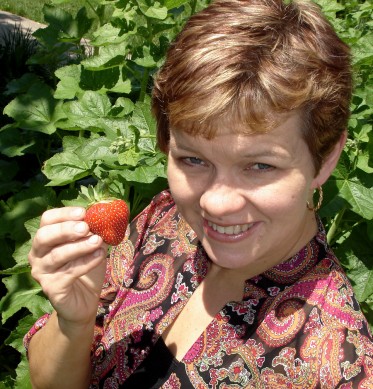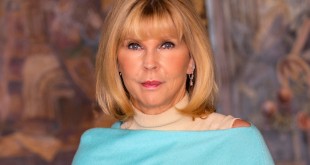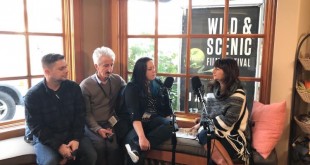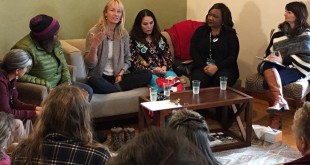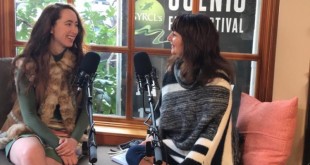The move to rural tranquility has reaped the benefits. Her award-winning Inn Serendipity Bed and Breakfast, completely powered by renewable energy, is considered one of and the “top 10 eco-destinations in North America. Her culinary focus on local and seasonal cuisine, with most ingredients grown on her farm, has been featured in publications from Vegetarian Times to Country Woman, and it inspired her and John to write a cookbook, Farmstead Chef. She has also written other books about making the change from urban to rural professional, including Kiss Off Corporate America: A Young Professional’s Guide to Independence and, with her husband, Rural Renaissance: Renewing the Quest for the Good Life and Ecopreneuring: Putting Purpose and the Planet Before Profits.
Kivirist is also a Kellogg Food and Society Policy Fellow, and director of the Rural Women’s Project for the Midwest Organic and Sustainable Education Service, which champions new business startups that focus on changing the current food system processes. And when she’s not doing all this, Kivirist does public speaking and workshops on topics ranging from green businsess to rural living (she’ll be speaking at See Jane Do’s “Passion into Action” conference
in October).
Instead of being a corporate drone, Kivirist now calls herself a “conservationist-author- innkeeper-teacher-photographer-philopopher-muffin baker-recycler-bioneer.” Instead of fitting into a neat package, her life and work blends, overlap and merge together, because they’re based on her personal values. Below, she talks with See Jane Do about how other women can successfully follow in her footsteps.
See Jane Do: How did you make the move from urban to rural?
Lisa Kivirist: My husband and I moved from Chicago to our farm 16 years ago. We were working like normal people, going to corporate cubicles and getting paychecks. But in our mid 20s, we questioned these equations of success and what we were working for. We were escaping the city on weekends to Wisconsin, fell in love with the rural countryside and started rethinking our own equations. Instead of working at jobs we felt no passion for, we asked ourselves, “Can we change our lifestyle and live a lot leaner financially but do the things we feel strongly about?”
SJD: And how do you make a living now?
Kivirist: It changes from year to year. The first thing we got started on was the B&B, and it has been a stable part of our livelihood. Then we started getting into the writing side, starting with the story of our transition from Chicago to the farm, and how others could do the same. I write a lot about women’s issues in rural areas. In terms of farming, we had no growing experience. We couldn’t even tell what zucchini looked like as a crop! Now we sell our produce to B&B guests and local restaurants. Last year, we had over 1,000 paychecks, and that exemplifies the diversity of keeping things going and not putting all our eggs in one basket. We also learned how to live on less.
SJD: What have been the surprises – and the challenges – of rural living?
Kivirist: The big surprise was the people we met. We’ve had amazing mentors who have taught us everything from gardening to green energy installation. Two of our neighbors, who we call Uncle Phil and Aunt Judy, showed up unannounced to help us. I think the challenge about moving from an urban to a rural setting is being too rigid and inflexible. Put yourself in a situation and see what germinates. You need to be flexible in your planning – that was a big lesson for me — and be open to who you meet and what comes along the way. Also, keep expenses as lean as possible. We don’t have to be slaves to paychecks, and we create a livelihood out of the lifestyle we want to lead. We eat like kings out of the garden and live in a beautiful community.
SJD: What’s your advice for those who are thinking about a similar move?
Kivirist: Really understand what it is you want. Some people focus on what they’re escaping from, but not what they want to create. There may be a lot of rat-race elements you want to leave behind, but it’s not like rural living and farm life is serenity. Know what you’re getting into beforehand. Our life is wonderfully busy and chaotic, but it’s different from our urban life because it’s in an environment that we control.
Forecast how you see your income playing out. Diversification is a strong part of our story, and we thrive on that, but we built it up over the years. What are the elements of your life that you can do yourself, from growing your own food to skipping childcare? What can you add that makes a big difference to your income? Talk to people who have made a similar move you want to do. Ask why they did what they did, how they decided where to go, what their advice is, and use what’s best for you.
Also keep in mind that there are lots of opportunities to make part-time transitions. We went before the Internet came of age. Women today have more opportunities to create a path to transition, like working part-time in their new setting.
Check out these websites from Lisa Kivirist for tips and resources on making the urban- to-rural transition
Rural Renaissance – resources for those who dream of a home in the country, and the how-to information to make it a reality
Rural Women’s Project for the Midwest Organic and Sustainable Education Service (MOSES) – an educational group that supports women farmers and food-based ecopreneurs
Farmstead Chef – Buy this cookbook and besides the tasty recipes, you’ll get a helpful listing of
resources for people who want to get into sustainable agriculture
Women, Food & Agriculture Network – www.wfan.org
 See Jane Do Everyday Women Doing Extraordinary Things
See Jane Do Everyday Women Doing Extraordinary Things
